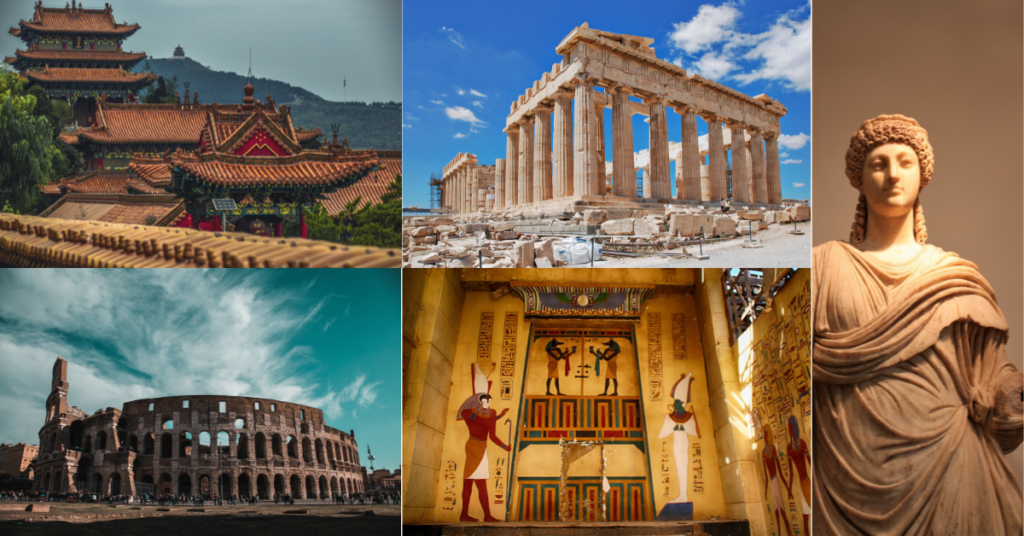
1. Analyze the factors that led to the collapse of a specific ancient civilization, considering both internal and external influences.
2. Discuss the concept of imperialism in ancient civilizations, examining the motives and consequences of territorial expansion.
3. Investigate the role of slavery in ancient civilizations, exploring its impact on the economy, social structure, and cultural practices.
4. Analyze the architectural and engineering marvels of ancient civilizations, such as the Great Pyramid of Giza or the Roman Colosseum, focusing on their construction techniques and symbolic meanings.
5. Discuss the advancements in medicine and healthcare practices in ancient civilizations, highlighting their contributions to human well-being.
6. Examine the cultural assimilation and resistance of indigenous cultures in the face of colonization by ancient empires.
7. Explore the intellectual and philosophical traditions of ancient civilizations, such as the Greek philosophers or the Confucian teachings, and their impact on later societies.
8. Analyze the military strategies employed by ancient civilizations, including tactics, weaponry, and logistics, and their significance in shaping historical conflicts.
9. Discuss the role of women as leaders, rulers, and influential figures in ancient civilizations, challenging the prevailing gender stereotypes of their time.
10. Examine the evidence of long-distance trade and cultural connections between distant ancient civilizations, such as the Silk Road or the Indian Ocean trade network.